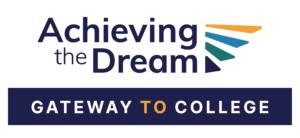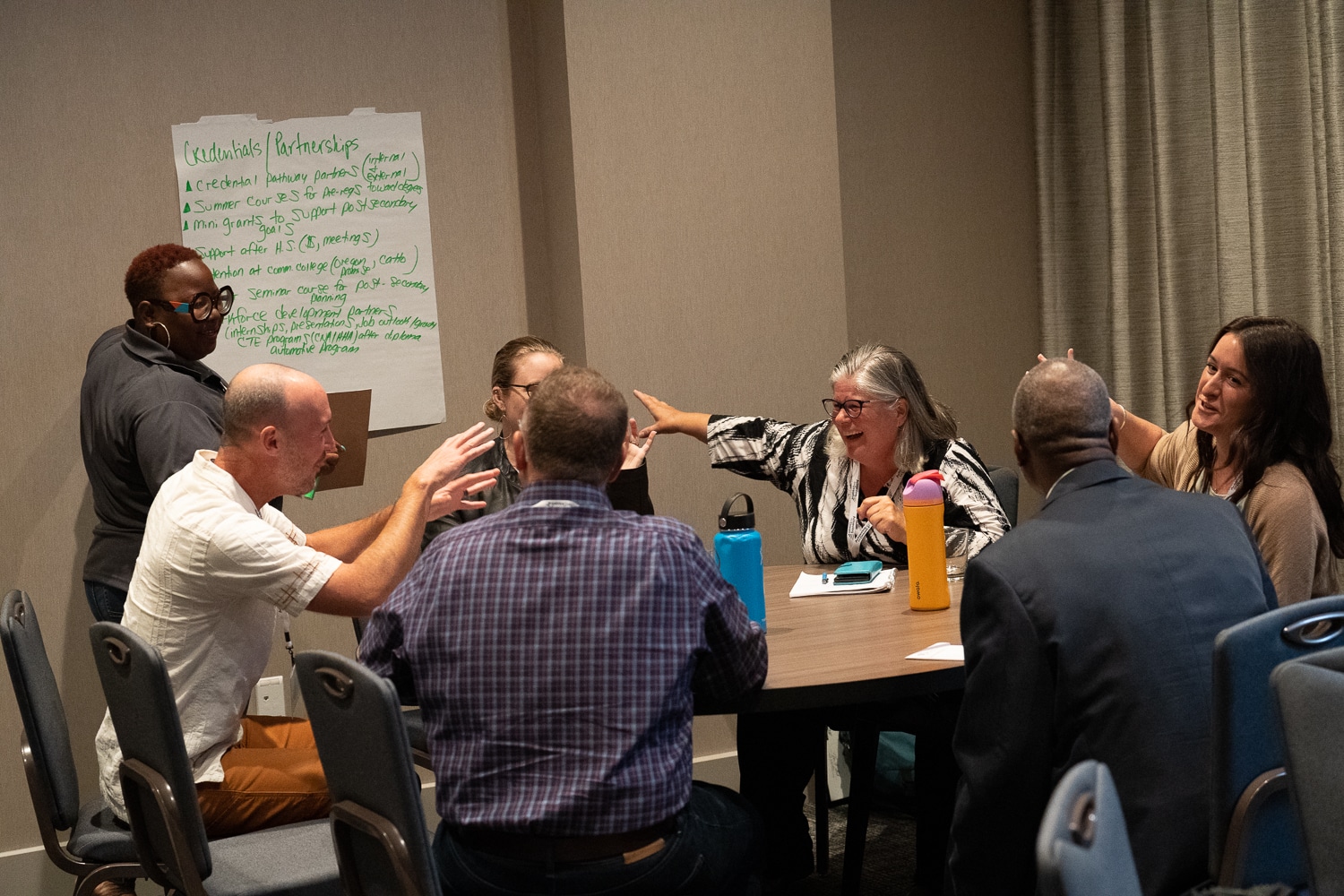This month Achieving the Dream hosted a webinar focused on outreach challenges for dual enrollment programs in a post-pandemic landscape. The webinar featured Gateway to College staff from Portland Community College (PCC), which was the founding member of the Gateway network in 2004.
Following a brief breakout session where attendees were invited to share their top challenges in dual enrollment outreach, Stephanie Davolos, ATD’s director of Gateway to College Network Services, provided a high-level overview of national trends in youth disconnection and early college programs.
In the last decade, the number of opportunity youth (people aged 16–24 who are neither working nor in school) decreased significantly, from 35% in 2010 to 10.7% in 2019. However, the COVID-19 pandemic interrupted that positive trend. Youth disconnection rose from 2019 to 2020 and, as of 2021, about 4.7 million young people were disconnected from education and the workforce.
Fortunately, the positive change of the previous decade is beginning to resume: Recent data from the National Student Clearinghouse shows that undergraduate enrollment increased in fall 2023. Community colleges have experienced the most significant improvement, where dual enrollment accounted for 40% of their total increases.
Programs like Gateway to College provide essential pathways for young people to re-engage with education and expand their opportunities for the future. Recent data shows that these programs are working. At PCC, a focus on relationships, a willingness to adapt, and an ability to expand operations has made the institution’s dual enrollment programming more effective than ever.
A relationship-based approach
Portland Community College (PCC), the largest postsecondary institution in Oregon, has supported students with a range of early college opportunities for more than two decades. For students who left high school without a diploma, PCC offers Gateway to College, a full-time dual enrollment program, on three of its four main campuses, as well as another program called Youth Empowered to Succeed (YES to College), which combines GED preparation courses with early college opportunities.
PCC has increased the number of dual enrollment students it reaches and serves. Director Joshua Mead says the program’s strong performance due to its relationship-based approach to student success, as well as innovation and adaptation during the pandemic.
“We had some successes but went through all the challenges that everybody else went through,” Mead said. His team has worked to develop innovative approaches that attract, engage, and support students to help them reach their goals.
PCC’s Gateway program is designed for nontraditional dual enrollment students: Young people who left high school without a diploma enroll as full-time college students and take classes on campus, earning college credits while simultaneously completing district requirements to earn their high school diploma.
Data spotlight
In the 2021–22 academic year, Portland Community College reported strong numbers and student success outcomes for its Gateway to College and YES to College full-time dual enrollment programs.
238
total students enrolled
85%
one-year persistence rate
51
average college credits earned when students graduate
Gateway students are assigned a college success coach who acts as an academic advisor as well as a mentor and an accountability partner, helping students select classes based on their transcript and program requirements. These coaches also encourage students to think ahead, considering their career interests and any longer-term plans to transfer to a four-year institution or enter the workforce.
In their first term, Gateway students take three classes as a cohort. One of these, a college success skills class, is taught by their success coach. Mead said this format creates a “learning community,” building a network of support and a sense of belonging for Gateway students that helps maintain high one-year persistence rates.
Mead also said it was a “privilege” to have multiple staff, from coaches to outreach coordinators, who can contribute to PCC’s relationship-based approach to dual enrollment.
Adaptation and innovation
Capacity for PCC’s early college programs has recently grown — the programs are now supported with multiple staff filling specific roles for outreach, management, and student services. Adam Clark, outreach and intake coordinator for Gateway and YES to College at PCC, said this hasn’t always been the case.
For a while, Clark was a team of one. “Being just one person, working with hundreds of students [across] many locations and many school districts… it was hard at times to bring the relationship-based approach to bear,” Clark said. He also said when the program operated largely through referrals, it limited his ability to reach new students who might benefit from Gateway to College. But the pandemic, while challenging, “presented a great opportunity for us to reimagine our processes,” he said.
The program hired Jazmin Velazquez, admissions specialist for Gateway to College and YES to College, who brought new ideas to improve marketing. Aside from updated strategies and materials, Velazquez said the students themselves have become strong ambassadors for the program: they wear branded sweatshirts around campus, post about their experiences on social media, and have participated in photoshoots for brochures, bus ads, and other collateral. Her efforts not only strengthened PCC’s outreach strategy but also expanded capacity for outreach staff to focus on building relationships with students and partners.
Strong partnerships, strong outcomes
Partnerships with K–12 districts are an essential element to successful dual enrollment programs. “Our school district partners are our biggest allies,” said Chon Madrigal, operations manager for Gateway to College and YES to College at PCC. Also a recent addition to the team, Madrigal has played an important role in facilitating stronger connections with Portland school districts.
Much of the program’s funding is based on attendance and credit hours taken — and Gateway to College enrollment at PCC actually increased during the pandemic. At the same time, the program received additional funding through Oregon Measure 98, a high school success initiative. “And so at a time when many programs were having to cut back, we were actually able to expand,” Madrigal said.
But, like the rest of his coworkers, Madrigal ultimately attributed the strength of program to the dedication of its staff. The Gateway and YES to College program was the first PCC team to fully return to campus when pandemic restrictions began to ease. The program’s ability to adapt and grow during such an unpredictable period “highlighted just how resilient our programs are and how much change we can take,” Madrigal said. “I think it speaks a lot to where we’re going.”
Gateway to College is a second chance for thousands of students every year. Gateway programs empower communities to re-engage students who disconnected from education through sustainable, revenue-sharing, partnerships between local colleges and school districts.
Join ATD on Thursday, Dec. 14, to learn how GtC maximizes equitable, effective dual enrollment and to determine if the Gateway to College program is right for your community.



